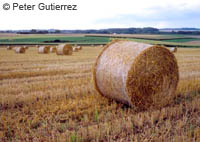GMO ban 'illegal' according to WTO leaked document
The World Trade Organisation (WTO) has confirmed a decision in favour of the US and against the EU in its final ruling on the EU's ban on genetically modified organisms (GMOs), according to a report not due to be published until June 2006, but leaked by diplomatic officials on 10 May. The decision confirms the 7 February WTO ruling. The EU had banned GMOs under a moratorium between June 1999 and August 2003. Canada, the US and Argentina had challenged this ban, bringing their case to the WTO. The WTO ruling confirms that the moratorium was indeed illegal. The opposing panel now extends to include the US, Australia, Argentina, Brazil, Canada, India, Mexico and New Zealand. This final ruling is not unexpected, and the EU has already introduced a new process for making decisions on GMO crops. In April, the European Commission proposed making the European Food Safety Authority (EFSA), which makes the final decisions about whether GMOs are approved, liaise with Member States and other stakeholders before making any decisions. Both sides of the argument found this to be unsatisfactory. The pro-GMO lobby groups believe that the proposals will in effect mean that GMOs are much less likely to be approved. The anti-GMO campaigners suggested that the proposals did not go far enough. On balance it seems that the Commission's proposals would indeed be a barrier to the introduction of GMO crops, but not an absolute barrier. The leaked report, reputed to run to 1,000 pages, is also reported to criticise the governments of Austria, France, Germany, Luxembourg and Greece, which have their own bans on the planting of GMO crops. The EU has tried to reign in these states and persuade them to use the new EU's regulations, but without success so far. Friends of the Earth, which has previously seen and commented on an earlier version of the leaked report was scathing in its criticism of the WTO's ruling. 'All this verdict proves is that the WTO is unqualified to deal with complex scientific and environmental issues, as it puts trade interests above all others. Its only effect has been to reinforce the determination of EU countries to resist bullying by pro-GE [genetic engineering] governments and to say no to GE crops and food,' said Greenpeace's Eric Gall. Since the EU's GMO moratorium came to an end two years ago, the WTO is unlikely to take action, and GMOs can theoretically be grown in Europe. In practice, only forms of cattle feed have been approved. The key hurdle for GMO companies is to make Europeans accept GMO products. Surveys have shown that Europeans seem disinclined to want GMOs. In other countries the issue is not so contentious, and consumers have no particular objections.



